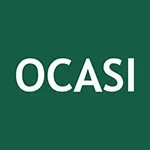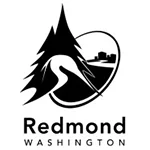|
|
The request for proposal process in agency selection works to the extent that it is open, fair and balanced.
The PR Council reports that one-third all new agency business comes from RFPs. That’s substantial enough to take the process seriously no matter the size of your firm. The critical point, and where we take a very strong stand, is that there must be a standardized “bill of rights” for agencies and clients alike.
Gone should be the sparse, two-page RFPs that prompt more questions than they answer, and that ask for the world in 10 days’ time. RFPs should include a core scope of work and a budget; there’s simply no way to rationalize that agencies should propose a cost. All agencies should have an equal shot at winning the client’s business. If an RFP does not follow these basic rules, agencies should reject it en masse.
Hiring a new agency with a budget of $250K, $500K or $1 million+ is like hiring a new public relations staff.
How long does that usually take? No staffer ever comes on board without presenting credentials, going through several rounds of interviews of staff, and being vetted through references, writing tests, and credit bureaus. It’s a process that typically takes you and HR three to six months -- yet most clients try to hire a new PR agency in four to six weeks.
It’s irrational, considering you are hiring a firm to be the caretaker of your corporate reputation, and to serve as your organization’s external face.
Definition and Background Needed
RFPs are pro forma in most industries. In PR, we need to operate differently. We should define the situation, provide context and background, and then outline what’s required. The goal of each RFP should be to provide as much information as possible to allow an agency to offer its perspective, qualifications, and proposed plan of action to achieve stated goals.
Every agency search deserves a defined timeline that is clear to both sides. Cattle calling numerous agencies to respond does no party any good, and disrespects our industry.
We advocate first pre-screening RFP recipient candidates through a request for qualifications (RFQ) as a means to uncover conflicts, true expertise, staffing, and (sometimes) locations. Choosing five to seven RFP recipient-contenders for your business is reasonable. Ending up with three or four finalists narrows the choice to a manageable level and winning agency.
Each successful, well-run agency search is a badge for the profession. The good work of our industry is evident in the Silver Anvils, Thoths, Gold Quills, SABRE Awards, and more. I would be willing to bet that many, if not most of those award-winning agencies were hired following a well-written and -organized RFP process.
***
Robert Udowitz, over the course of three decades in PR and PA, has worked at agencies, corporations, and trade associations in New York and Washington. Robert and his partner Steve Drake founded RFP Associates after observing the agency selection process from “both sides of the aisle” and recognizing the need to streamline and improve the way searches are made and agencies selected from an honest, unbiased approach. They both feel strongly that the profession ultimately benefits and builds respect for itself by improving the methodology in which agencies are chosen and communications campaigns are executed.

 Robert Udowitz
Robert Udowitz
 The Ontario Council of Agencies Serving Immigrants is looking for a firm to promote its new national initiative on equity and racial justice.
The Ontario Council of Agencies Serving Immigrants is looking for a firm to promote its new national initiative on equity and racial justice. The Great Blue Wall Initiative, a global conservation effort aimed at presevering marine ecosystems and promoting sustainable ocean use, wants proposals from marketing and branding firms.
The Great Blue Wall Initiative, a global conservation effort aimed at presevering marine ecosystems and promoting sustainable ocean use, wants proposals from marketing and branding firms. The Florida Department of Transportation wants to hear from firms interested in providing public outreach for its various construction projects.
The Florida Department of Transportation wants to hear from firms interested in providing public outreach for its various construction projects. Redmond, a city of 77K people located less than 20 miles from downtown Seattle, wants a roster of firms to develop crisis communication plans, and be ready to answer the call in the event that an emergency hits.
Redmond, a city of 77K people located less than 20 miles from downtown Seattle, wants a roster of firms to develop crisis communication plans, and be ready to answer the call in the event that an emergency hits. The Iowa Economic Development Authority is looking for a firm to handle its $5M annual strategic marketing and communications budget.
The Iowa Economic Development Authority is looking for a firm to handle its $5M annual strategic marketing and communications budget.


 Have a comment? Send it to
Have a comment? Send it to 
No comments have been submitted for this story yet.